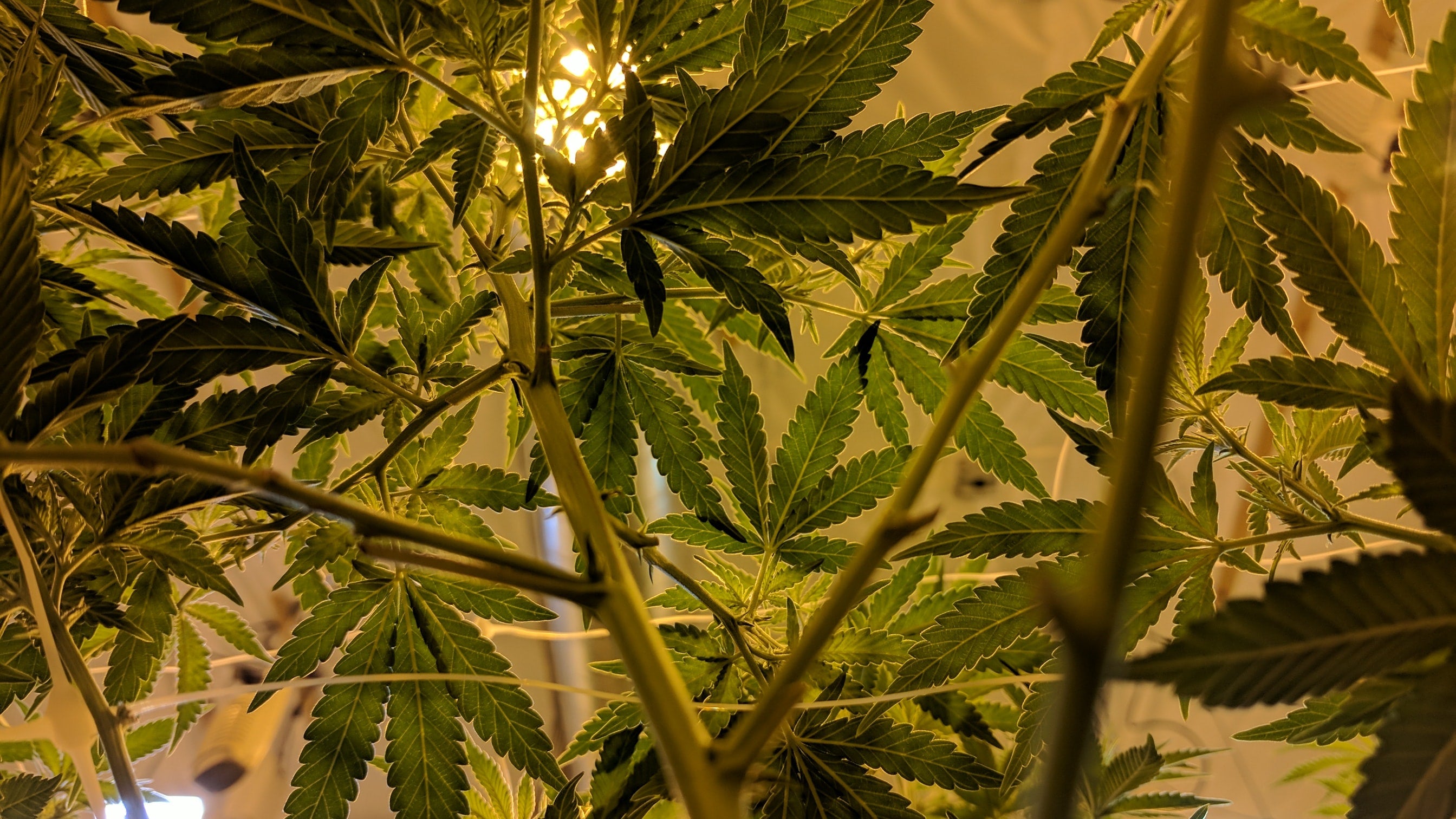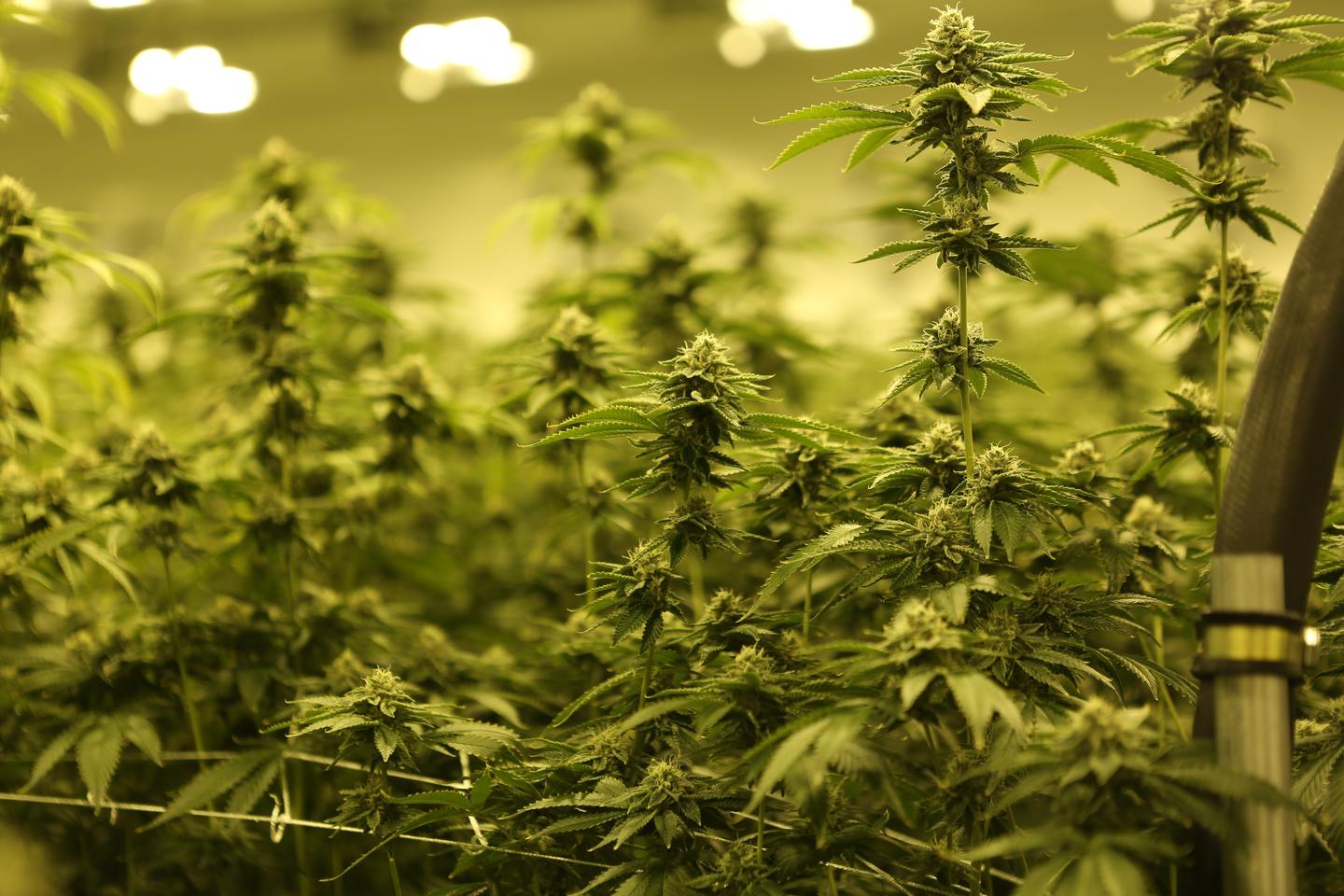Oregon has an extremely favorable climate—both politically and environmentally—for marijuana. Not only is Oregon one of the first states to legalize medical marijuana, but recent statistics also suggest the 33rd state has a high percentage of pot smokers. Plus, Oregon routinely produces a large portion of the nation’s annual marijuana and hemp supply.
With the legalization of recreational weed in 2015, it has never been a better time to set up a dispensary in Oregon. Whether you’re interested in starting a medical or recreational marijuana business, you’ll feel right at home in this famously pot-friendly state.
If you’re confused about how to navigate Oregon’s dispensary application process, then you’ve come to the right place.
In this post, we’re going to share the info you need to know when applying for a dispensary license.
In addition to going over important rules and documentation, we’ll share dozens of authoritative links you should add to your Favorites. As long as you follow the guidelines outlined below, you shouldn’t have any issues opening your dream dispensary.
OLCC or The Oregon Health Authority: Who Should You Work With?
Whether you’re applying for a medical or a recreational dispensary, the best first step you could take is to create an online account. What kind of dispensary you want to open, however, will determine what agency you have to deal with.
First off, those who are interested in recreational marijuana have to work with the Oregon Liquor Control Commission (OLCC). You can find a ton of helpful information on recreational marijuana in Oregon by visiting the OLCC’s official page here.
Medical marijuana dispensaries, on the other hand, must go through the Oregon Health Authority. Be sure to click this webpage to find more info on the proper protocols for a medical dispensary.
If you’re ready to sign up for an online account, feel free to click this OLCC link for recreational marijuana or this link for medical dispensaries.
An Overview Of Oregon’s Dispensary Application
Now that you know who to work with, let’s examine what a typical dispensary application looks like. Although we’ll be focusing on the OLCC’s requirements in this piece, there are many similarities with Oregon’s medical dispensary application. Anyone who wants more specific information on the state’s medical marijuana program, however, should visit this website.
A Quick Look At The OLCC’s “Eight Sections”
When you first review OLCC’s Marijuana Retailer Application, you’ll notice there are eight sections you need to fill out. To help you better prepare for your application, check out this brief overview of each section.
Section One: List your full name, contact information, and your dispensary’s location.
Section Two: Detail your store’s hours of operation. If you’re planning to keep your store open between 10 PM – 7 AM—which is illegal under state law—then you must explain why.
Section Three: In this section, the OLCC asks “yes or no” questions to ensure your dispensary is in a legal zone.
Section Four: List every person who has a financial interest in your dispensary.
Section Five: Here you will note whether you’re sending through optional applications for Medical Purposes Registration and Home Delivery Registration. We’ll examine these registrations in greater detail below.
Section Six: In this section, you’ll have to answer a series of “yes or no” questions on various aspects of your business. This includes how you will train your employees, your security system, and your marijuana transportation responsibilities.
Section Seven: Here you will find the state’s official protocols on how to screen for minors at your dispensary. If you choose not to accept the OLCC’s guidelines, then you must provide an acceptable alternative strategy.
Section Eight: Lastly, you must acknowledge that all of the statements made in the other seven sections are true.
If you want to see all of these eight sections in full detail, be sure to click on this PDF file.
Are Any Other Documents Required?
Yes, everyone who applies for a Marijuana Retailer Application must submit a few secondary documents. Here are the essential files you need to send with your application:
- To verify your dispensary is in a legal zone, you’ll have to submit a Land Use Compatibility Statement (LUCS). You can find a LUCS PDF file here.
- Include a formal document that shows you have the legal right to operate in your dispensary’s location (e.g., a lease or a deed).
- OLCC also requires a map of your dispensary’s floor plan drawn to scale. You can see what a successful premises map looks like on this handy PDF.
If you have other people or corporations who are financially involved in your dispensary, then you may also have to fill out a few other forms. Here are links to the four questionnaires OLCC now offers:
- Limited Liability Company Questionnaire
- Corporate Questionnaire
- Limited Partnership Questionnaire
- Sole Proprietor Form
Depending on how much of a stake each person has in your dispensary, OLCC may ask for Individual History Reports. You can find the official Individual History Form on this link.
What’s A Medical Purposes Registration?
OLCC’s optional Medical Purposes Registration allows recreational dispensaries to sell medical-grade marijuana to patients and caretakers on Oregon’s Medical Marijuana Program. If you are going to add medical-grade marijuana to your store’s catalog, then please be careful to keep medical and recreational products separate.
You can read through the full Medical Purposes Registration by clicking on this link.
Ganja Home Deliveries—Yes, It’s A Real Thing!
The second optional registration in OLCC’s dispensary application is listed as Home Delivery Services. Just as the name suggests, this registration will allow you to deliver a legal amount of ganja goodies to a customer’s home.
Unsurprisingly, there are many stipulations attached to this service. For starters, you cannot bring your product outside of your dispensary’s district. Here are a few other rules you must keep in mind:
- Only deliver marijuana between 8 AM – 9 PM.
- Never bring marijuana goods to businesses, hotels, or dormitories.
- Marijuana deliveries must not exceed $3,000.
- Place marijuana goods in a secure lock-box.
- Keep detailed receipts of every at-home delivery.
- Only drive in an insured car registered in Oregon.
- Delivery cars must have lock and alarm systems.
For more details on applying for Home Delivery Services, please click on this official link.
What’s Oregon’s Cannabis Tracking System?
Everyone involved in Oregon’s marijuana industry must agree to use the state’s online Cannabis Tracking System (CTS). Also known as “Metrc,” the CTS helps dispensary owners keep tabs on their marijuana inventory and share information with respective government authorities.
Since CTS is a significant part of Oregon’s marijuana industry, we encourage you to visit this online CTS guide put together by the OLCC. You could also learn a great deal about the CTS on this helpful link.
Don’t Forget Your Background Check!
Lastly, you must submit a thorough background check request and a set of professional fingerprints to the following address:
DHS/OHA Background Check Unit
P.O. Box 14870
Salem, OR 97309-5066
According to the Oregon Health Authority, government officials are primarily interested in any previous convictions for illegally manufacturing or delivering Schedule I or II drugs. Please keep in mind prior convictions do not necessarily bar you from receiving a dispensary license.
By the way, you could submit your fingerprints electronically if it’s more convenient for you. Here’s more information on Oregon’s fingerprinting services.
For a full list of Oregon’s background check request forms, take a look at this official webpage. You can find background check requests specifically for medical marijuana dispensaries on this link.
Oregon’s Marijuana Taxes & Application Fees
OK, we know fees & taxes aren’t the cheeriest subjects, but they are realities every prospective dispensary owner must be prepared to handle.
People who are filling out the OLCC’s recreational dispensary application must pay $5,000, which includes a non-refundable $250 application fee. Those trying to set up a medical marijuana dispensary, however, will have to pay the Oregon Health Authority a $3,500 registration fee and a $500 non-refundable application fee.
On top of these application fees, expect to pay $35 for your background check. Successful applicants must also pay $480 per year to take part in Oregon’s Cannabis Tracking System. Please consult this FAQ page if you have further questions about licensing payments.
In terms of taxes, there’s now a 17 percent tax on all marijuana goods sold throughout Oregon. According to the Oregon Department of Revenue, municipalities could add up to a three percent local tax on top of this 17 percent rate.
You can find out more information on Oregon’s marijuana taxation policy on this Department of Revenue page.
Where You Can’t Build A Dispensary In Oregon
In Oregon, it’s illegal to build a dispensary within 1,000 miles of a school or another recreational dispensary. Most districts also don’t permit dispensaries in residential areas.
To help you find a safe and legal dispensary location, the state government recently put together this interactive School Locator Map. While this online map is helpful, it’s no replacement for physically surveying the area where you want to set up a shop.
Also, keep mind that not every district in Oregon allows the sale of recreational marijuana. As a prospective dispensary owner, it’s your job to contact local legislators and figure out where they stand on recreational dispensaries.
Please be sure you know the laws governing dispensaries in your proposed location before sending out your application. Also, if you want to open a dispensary on federally-protected Tribal Grounds, then you must gain approval from the respective Native American tribes.
You can find out more about Oregon’s opt-out program by clicking this FAQ page put together by OLCC.
What Are Oregon’s Consumer Limits?
Like every other state, Oregon has a set of daily marijuana limits for customers. As a dispensary owner, it’s your responsibility to teach all of your employees how much marijuana they can legally sell to customers each day.
Most importantly, you must ensure everyone who buys recreational marijuana from your shop is at least 21-years-old. All of your employees must also be over 21.
As long as you’re working with a legal-age customer, here are the daily limitations to keep in mind:
- No more than one ounce of marijuana buds per day.
- A max of five ounces of cannabinoid extracts or concentrates.
- 16 ounces or less of solid marijuana edibles.
- 72 fluid ounces of marijuana-infused liquid products.
- No more than ten marijuana seeds.
- Four immature marijuana plants.
The OLCC put together this colorful PDF file detailing the state’s legal cannabis limits. Feel free to print this out and hang it in your dispensary for quick reference.
Required Signage For Oregon Dispensaries
While we’re on the subject of colorful PDFs, it’s worth pointing out that Oregon has strict signage policies. You must display the following signs in your store where everyone could see them:
- “No Minors Permitted Anywhere On This Premises.”
- “No On-Site Consumption Of Marijuana.”
You should also place a “Do Not Enter” sign by areas that are only for employees. Each of these signs must be 12’’ x 12’’ and have letters that measure at least one half-inch each. You also must print these signs in both English and Spanish.
The State of Oregon also requires dispensaries to hang three 17’’ x 22’’ public health bulletins in their store. The first poster is on smoking while pregnant, the second details potential marijuana poisoning, and the third promotes the state’s “What’s Legal Oregon” program.
You can find these signs on this Oregon Health Agency website. You could also learn more about proper dispensary signage on this OLCC link.
Good Luck With Your Oregon Dispensary Application!
Applying for a dispensary license can be exhilarating at times, but it could also be extremely confusing.
We hope the info above gives you a rough outline of what to expect during the application process. If you have any further questions, then you should reach out directly to either the OLCC or the Oregon Health Authority. Click on this link for contact details related to the state’s Medical Marijuana Program and this link for OLCC’s contact information.




























